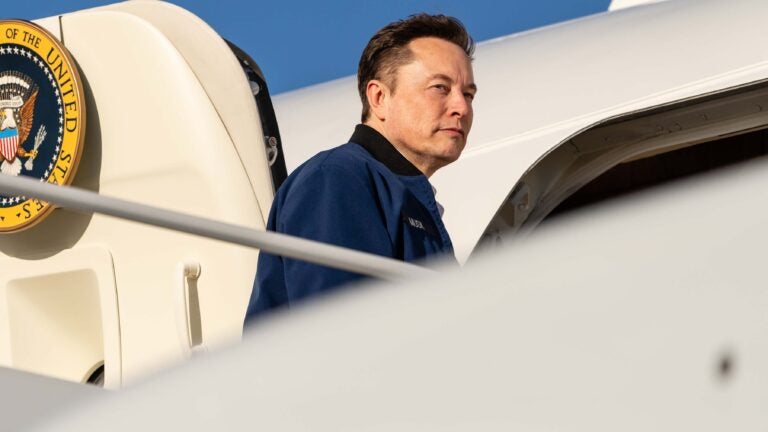Elon Musk’s Rising Public Controversies Amid Political Alliances and Personal Struggles

By Kirsten Grind and Megan Twohey, The New York Times
9-minute read
Over the past year, as Elon Musk positioned himself as one of Donald Trump’s closest political allies-attending rallies, making substantial donations estimated at around $275 million to support Trump’s presidential bid-new details have emerged about his increasingly erratic personal behavior, including a significant escalation in drug use, according to sources familiar with his activities.
Reports indicate Musk’s substance consumption extends well beyond casual use. He has openly admitted to using large quantities of ketamine, a powerful anesthetic known for its dissociative effects, claiming it impacted his bladder health-a recognized risk associated with heavy use. Additionally, he has reportedly used ecstasy and psychedelic mushrooms, and carried a daily medication kit containing approximately 20 pills, including those marked as Adderall, a stimulant often prescribed for ADHD.
It remains uncertain whether Musk, now 53, was under the influence during his recent White House visits, where he played a role in streamlining government agencies. Nonetheless, his behavior has appeared unpredictable-insulting cabinet officials, making Nazi-like gestures, and providing incoherent responses during staged interviews.
Simultaneously, Musk’s personal life has become increasingly tumultuous, marked by complex romantic entanglements and legal disputes involving his children, according to documents and interviews with acquaintances.
Recently, Musk announced his departure from government advisory roles, citing a desire to focus more on his business ventures rather than politics.
Neither Musk nor his legal representatives responded to requests for comment regarding his drug use or personal affairs. Musk has previously stated that he was prescribed ketamine for depression, taking it approximately biweekly, and has emphasized that he does not engage in illegal drug use.
The White House has not confirmed whether it requested Musk to undergo drug testing. As a contractor for the federal government, SpaceX, Musk’s aerospace company, enforces strict drug-free policies and conducts random tests, though sources suggest Musk has been warned to avoid detection.
Public Persona and Eccentricities
Known for his grandiose statements and quick temper, Musk is often viewed by supporters as an eccentric genius whose unconventional management style fuels his success. However, critics and former friends have expressed concern over his erratic conduct, mood swings, and obsession with having younger companions, raising questions about his stability.
Family Dynamics and Custody Battles
Musk’s complicated family life has garnered attention, especially regarding his children. His relationship with musician Claire Boucher, aka Grimes, has been publicly strained, particularly over their shared son, X, who Musk frequently takes to high-profile events, including the Oval Office and global summits. Boucher has privately expressed fears about her son’s safety and the impact of Musk’s public appearances on his well-being, citing concerns over constant travel and sleep deprivation.
In addition, Musk’s other romantic relationships have led to legal disputes. For instance, he publicly acknowledged fathering twins with Neuralink executive Shivon Zilis amid ongoing custody negotiations with Boucher. These disputes have often kept Musk’s children out of the public eye, despite his high-profile lifestyle.
Substance Use and Mental Health Challenges
Musk has openly discussed his mental health struggles, describing episodes of intense highs and lows, along with persistent stress. He has criticized traditional antidepressants and therapy, instead turning to recreational substances. Sources close to Musk report frequent binge drinking, prolonged gaming sessions, and weight-loss medications.
His history of recreational drug use includes regular ketamine consumption, sometimes daily, alongside ecstasy and psychedelic mushrooms at private gatherings across the U.S. and abroad. The FDA has approved ketamine solely for anesthesia, warning about its risks, including dependency and bladder issues, especially after the death of actor Matthew Perry, who struggled with ketamine addiction.
In interviews, Musk has minimized his drug use, claiming he takes only small, prescribed doses of ketamine biweekly for mood management. However, insiders suggest his actual consumption has been far more frequent and intense, blurring the line between medical treatment and recreational abuse.
Political Engagement and Controversies
By spring 2024, Musk’s political stance had become more pronounced, openly criticizing President Joe Biden’s immigration policies and other initiatives. He also faced federal investigations into Tesla’s self-driving cars and workplace discrimination allegations, which added to his mounting controversies.
Expressing his political preferences publicly, Musk endorsed Trump in July, asserting his desire to see Trump defeat Biden, despite being ineligible to run for president himself. His health issues, including bladder problems linked to ketamine, reportedly worsened during this period.
In October 2024, Musk appeared alongside Trump at a rally, expressing optimism about the future and hinting at technological surprises, such as “lasers from space,” fueling speculation about his mental state and substance use at the time.
Following Trump’s victory, Musk moved to Mar-a-Lago, participating in government transition activities and planning reforms for federal agencies, further entrenching his political involvement.
Family Secrets and Reproductive Choices
Musk’s efforts to expand his family have been marked by secrecy and legal battles. Despite having six children from his first marriage and two with Boucher, he secretly fathered additional children through surrogacy, including twins with Neuralink executive Shivon Zilis and a fourth child with Boucher, who was pregnant via surrogacy as of 2023.
He has publicly expressed concerns about declining global birthrates, advocating for increased procreation and donating millions to related research initiatives. Privately, Musk has engaged with prominent pro-natalist figures and encouraged wealthy friends to have more children, believing that a smarter, larger population is essential for civilization’s future.
His intense focus on fatherhood is evident in his frequent trips with his children, often without public notice. His relationships with his partners have been tumultuous, with custody disputes and revelations of new pregnancies complicating his personal narrative.
Controversial Public Behavior and Ideological Statements
Musk’s provocative actions and statements have drawn widespread criticism. Former friends like philosopher Sam Harris have condemned his social media conduct, accusing him of spreading misinformation and defaming individuals. His gestures, such as a fascist salute at a political event, have sparked outrage and accusations of sympathizing with extremist ideologies.
In February, Musk was photographed receiving a chainsaw from Argentine President Javier Milei at a political conference, symbolically representing his stance against bureaucracy. His onstage behavior, including disjointed speech and laughter, has led to speculation about drug influence, especially after viral clips circulated online.
Despite the controversy, Musk remains a central figure in global discussions on technology, politics, and social issues, with his actions often polarizing public opinion.

